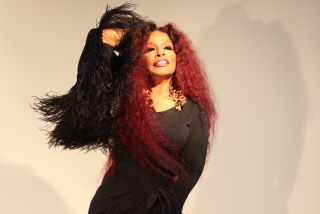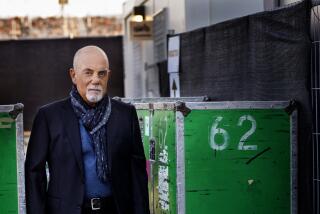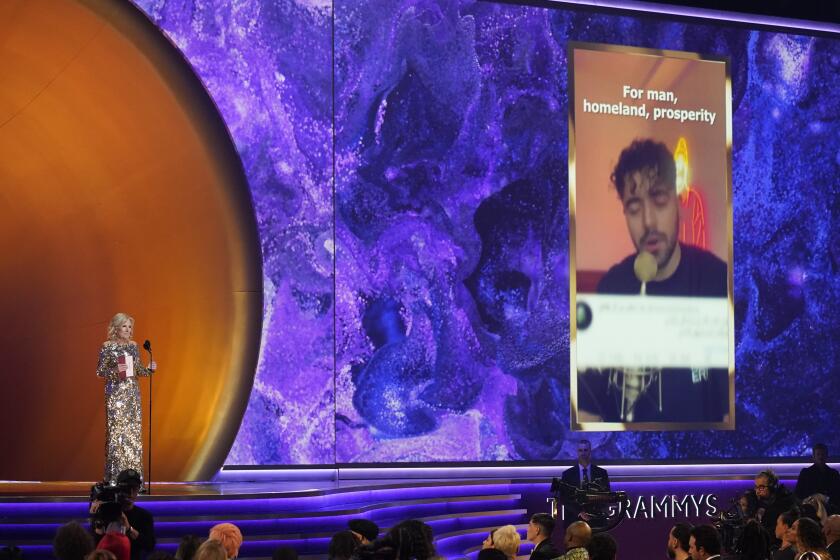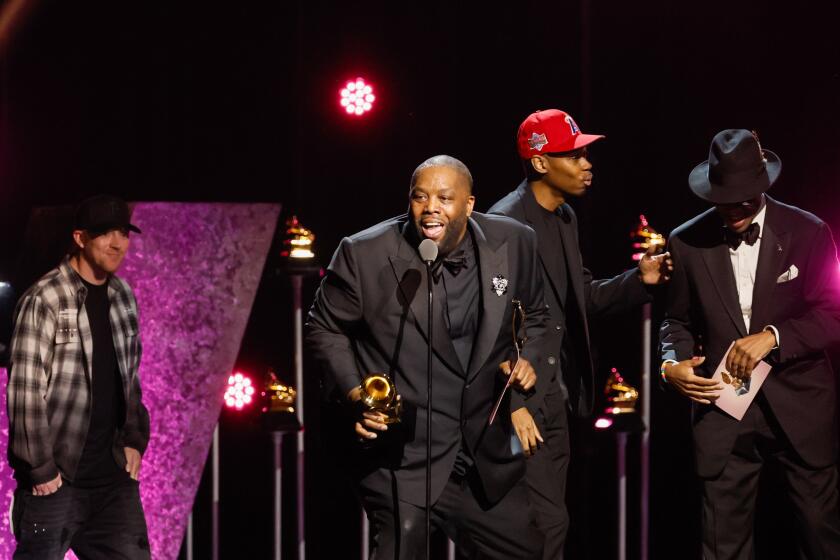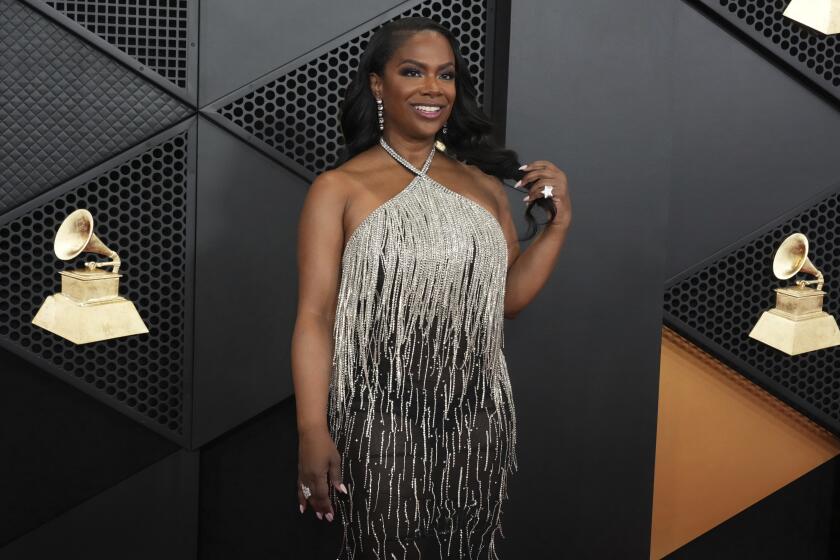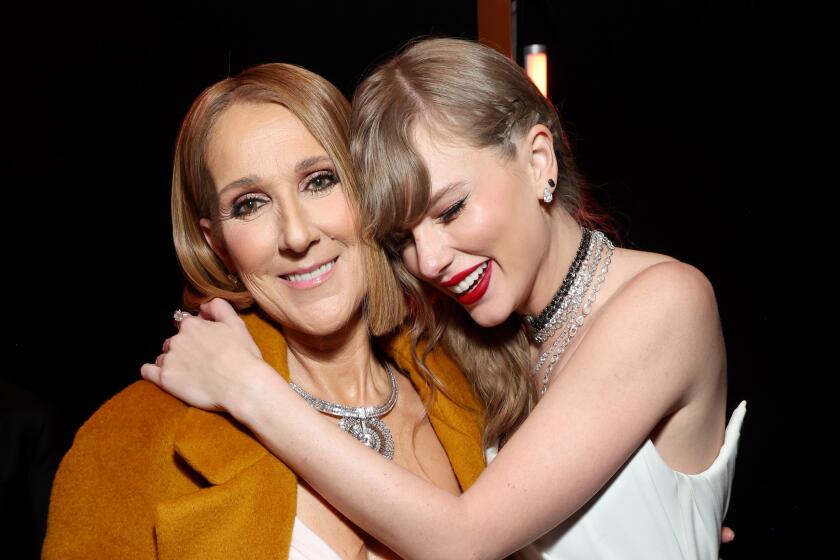A Brand-New Grammy Day : Revamped Rules, Emphasis on Younger Acts Are on Tonight’s Lineup
Michael Greene never expected to find himself arguing that Michael Jackson shouldn’t be overlooked for Grammy Award consideration.
But that’s exactly what happened recently, when Greene, the president and CEO of the National Academy of Recording Arts & Sciences, convened the new committee charged with selecting the five nominees in each of the 1996 Grammys’ top four categories: best album, record, song and new artist.
The very existence of this panel--25 music executives, performers, producers, songwriters and journalists whose identities Greene refuses to reveal--is the latest and most dramatic move of his campaign to give the Grammys credibility and currency. Rather than have nominations come from a straight vote of the 7,000 academy members, this panel would now choose the finalists from the top 20 vote-getters.
It was a move Greene had to make. The Grammys had been under fire from critics for years for honoring the most conservative, mainstream music, and key music industry figures were increasingly joining the chorus. After last year’s Grammys, in which the best album nominations included “The Three Tenors in Concert” and “Tony Bennett Unplugged,” several top record company executives publicly voiced their criticism and even threatened to withdraw funding from the academy.
“The fact is that in many cases, when you look at what we’re supposed to be doing--rewarding excellence--popularity and sentimentality were sprinkled through the top four categories regularly,” Greene says, sitting in the Shrine Auditorium while TLC rehearses for its appearance on tonight’s Grammy telecast.
But Michael Jackson? He’s one of the all-time leading Grammy winners, and his “HIStory” collection hadn’t exactly been embraced by the public as a pop pacesetter. Why would Greene be giving him a boost?
“When the Michael Jackson album was brought up for consideration for album of the year, there was a big groan through the room,” Greene recalls.
“But I said, ‘Forget the tabloid stories. . . . Just listen to the record. Listen to the engineering . . . the songwriting and the performances.’ And about halfway through, the panelists looked at each other and said, ‘You know? This is pretty good.’ ”
“HIStory” did, in fact, make the cut. But as a representative of the mainstream, traditional pop world, it joins Mariah Carey’s “Daydream” in the minority, facing albums by three more cutting-edge artists: Alanis Morissette, Joan Osborne and Pearl Jam.
The very fact that Greene felt he needed to make that stand proves to him how well the change has worked. For the first time in the Grammys’ 38 years, the odds favor pop’s leading edge.
And so does the show itself, which will be televised nationally on CBS tonight at 8. The emphasis for the live performances is on younger acts, notably Osborne, Morissette, rapper Coolio (whose “Gangsta’s Paradise” is the first hard-core rap song nominated as record of the year) and Hootie & the Blowfish, in addition to TLC.
And Greene’s not only allowing Morissette to sing “You Oughta Know” complete with its sexually explicit lines and prominent profanity, but he’s also encouraged her to do so--as he has urged Osborne not to shy away from the controversial references to God in her hit “One of Us.”
“We went to CBS and said we hoped they’d allow it to be on the air,” he says, though he’s not too hopeful--after all, last year his own speech was pulled from the TelePrompTer by CBS officials, due to its intense remarks indicting Republican plans to cut arts funding, leaving Greene to wing it. This year, Greene will turn over the lectern to actor Richard Dreyfuss for advocacy of arts education.
Greene is not shy about this being a direct challenge to the network, whose contract with the Grammys runs out after next year’s show. Blaming the Grammys’ declining ratings at least in part on CBS’ own diminishing audience share in recent years, Greene makes it no secret that he’d happily move elsewhere, especially to a network such as Fox or NBC that has aggressively sought a young audience.
The changes in the Grammy show this year are clearly meant to demonstrate that kind of interest.
“Our demographics are skewing younger now, while CBS is skewing older,” Greene says.
Next year, he says, they’ll up that aspect even more, with plans for the Grammys to make a long-discussed move out of the stately Shrine and its New York counterpart, Radio City Music Hall, to a larger arena, most likely either L.A.’s Forum or New York’s Madison Square Garden. That would provide the chance to break away from awards show convention and design a program that might make for more entertaining television viewing.
“It’s 95% certain that this is the last time we’ll be here and that next year we’ll be in an arena,” he says, looking around the Shrine’s interior. “This year will be the end of an era, and next year we’ll start a new one.”
More to Read
The biggest entertainment stories
Get our big stories about Hollywood, film, television, music, arts, culture and more right in your inbox as soon as they publish.
You may occasionally receive promotional content from the Los Angeles Times.
